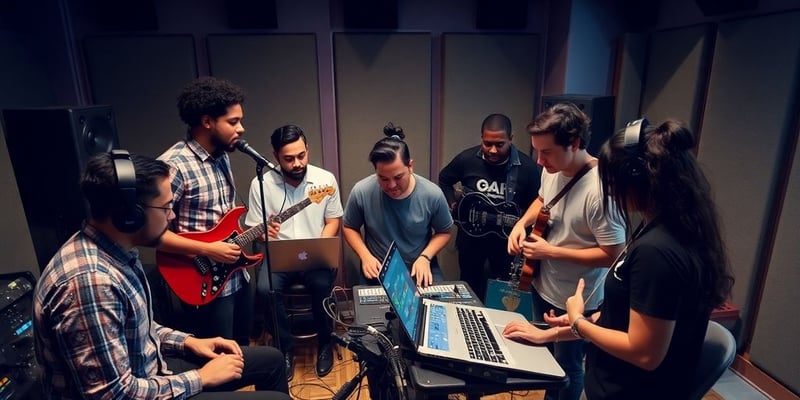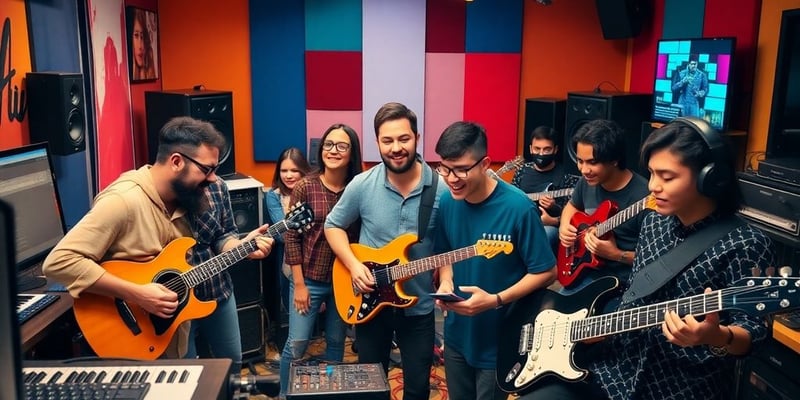
Unleashing Creativity: How AI Rap Voice Technology is Transforming Music Production
Save 15%

Ever thought about how AI is shaking things up in music? Well, AI rap voice technology is doing just that. It's not just a cool gadget; it's changing how artists create and produce music. Imagine having a digital partner that helps you craft unique sounds or speed up the production process. That's what AI rap voices are all about. They're making music more personal and innovative, and artists are loving the new creative freedom. Let's dive into how this tech is transforming the music scene.
Key Takeaways
- AI rap voice technology is revolutionizing the music industry by offering new creative possibilities.
- Artists can now produce tracks faster and experiment with different styles using AI.
- The technology allows for a more personalized music experience, tailoring sounds to individual artists.
- AI rap voices are not just tools but creative partners in the music-making process.
- While offering many opportunities, AI in music also raises ethical and copyright concerns.
The Rise of AI Rap Voice Technology
Understanding AI in Music Production
AI in music production is like having a new band member who never gets tired. It's a game-changer, bringing fresh ideas to the table. These AI tools can analyze tons of music data to create rap lyrics and mimic vocal performances. Imagine an AI rapper voice generator that can imitate popular rappers' voices with flair. It's not just about copying; it's about creating something new and exciting. AI can help artists experiment with styles they never thought possible.
Historical Context and Evolution
Back in the day, music production was a manual and time-consuming process. The evolution of AI has changed that. In the past few years, AI has gone from a concept to a reality in the music industry. It started with simple beat-making and has grown into full-blown voice generation. The technology is advancing quickly, making it easier for artists to produce music without needing a full studio setup. This shift is opening doors for more diverse voices and styles in the rap game.
Key Players in the Industry
Several big names are driving the AI rap voice revolution. Companies like OpenAI and Google are at the forefront, developing tools that are pushing the boundaries of what AI can do in music. Smaller startups are also making waves, offering innovative solutions for artists looking to integrate AI into their workflow. These players are not just creating tools; they're shaping the future of music production. As the technology continues to evolve, we'll see even more players entering the scene, each bringing their unique twist to AI music production.
Transforming Music Production with AI Rap Voices
Enhancing Creativity and Innovation
AI rap voice technology is like a fresh breeze in the music industry. It opens doors for artists to explore new sounds and styles without the usual constraints. Imagine having the ability to experiment with different vocal effects or styles at the click of a button. This tech allows artists to push their creative boundaries and come up with something truly unique.
- Artists can test out different voices and flows before deciding on the final version.
- AI tools help generate ideas quickly, perfect for those moments of creative block.
- It's like having a virtual studio assistant, always ready to help.
Streamlining the Production Process
The production process can be long and tedious, but AI rap voices speed things up. With AI, you can lay down tracks in no time, which means more time to focus on the artistic side of things. This efficiency is a game-changer for producers and artists alike.
- AI can handle repetitive tasks, letting artists focus on creativity.
- Quick turnaround times mean more music can be produced.
- It's a cost-effective solution for those without access to expensive studio gear.
Personalizing Music for Artists
Every artist wants to stand out, and AI rap voices can help with that. By customizing AI-generated voices, artists can create a sound that's truly their own. This personalization is crucial for building a unique brand in the crowded music landscape.
- Tailor AI voices to match an artist's style and vibe.
- Experiment with different sounds until you find the perfect fit.
- Use AI to mimic and pay homage to legendary artists, keeping their legacy alive.
AI rap voice technology isn't just a tool; it's a new creative partner in music production. It empowers artists to explore, innovate, and create without limits. As we embrace this technology, the possibilities for music are endless.
AI Rap Voice: A New Creative Partner

Collaborating with AI for Unique Sounds
AI rap voice technology is like having a new band member who never gets tired or runs out of ideas. Imagine being able to experiment with different vocal styles and effects without needing a studio full of equipment. This tech lets you try out new sounds and tweak them until they’re just right. It's like having a creative partner who's always ready to jam. Artists can combine their own ideas with AI-generated ones to create something truly unique. This collaboration can lead to sounds that might never have been discovered otherwise.
Expanding Artistic Boundaries
With AI, artists can push their music beyond traditional limits. It's like opening a door to a room full of endless possibilities. You can bring historical figures or fictional characters to life through rap, creating a mix of the past and present. This technology challenges what we think is possible in music, allowing artists to explore new genres and styles. It’s not about replacing human creativity but expanding it to new horizons.
Balancing Human and Machine Input
Finding the right balance between human creativity and machine input is crucial. While AI can generate beats and lyrics, the heart of music still lies in human emotion and experience. Artists need to decide how much of their music is shaped by AI and how much is their own voice. This balance is key to creating music that resonates with listeners. It's about using AI as a tool to enhance, not overshadow, the human touch in music creation.
The fusion of AI and rap personas has demonstrated the immense potential to reimagine famous individuals, resurrect historical figures, and create engaging and thought-provoking artistic experiences. By embracing AI as a partner, artists can explore new horizons, captivate audiences, and shape the future of music and entertainment.
Challenges and Opportunities in AI Rap Voice Technology
Ethical Considerations and Copyright Issues
AI rap voice technology is opening up new creative spaces, but it's also stirring the pot when it comes to ethics and copyright. The big question is: who owns the music generated by AI? If a machine creates a catchy rap verse, is it the programmer, the user, or the AI itself that holds the rights? This grey area makes it tricky for artists and producers to navigate copyright laws. Plus, there's the ethical side of things—like making sure AI-generated voices aren't used to imitate real artists without permission.
Impact on Traditional Musicians
There's a lot of buzz about how AI might shake up the music scene, especially for traditional musicians. Some folks worry that machines could edge out human artists, but others see AI as a tool rather than a threat. For many musicians, AI is like having an extra band member who never tires and always has fresh ideas. But let's not forget, the heart and soul of music come from human experience, something AI can't quite capture.
Future Prospects and Innovations
Looking ahead, AI rap voice technology could really change the game. We might see AI helping artists create music that's more personalized and unique than ever before. Imagine a future where AI can tailor a beat to your mood or help you find the perfect rhyme in seconds. The possibilities are huge, but it's important to keep an eye on how these advancements impact the art of music itself. Balancing innovation with tradition will be key as we move forward.
The Future of Music: AI Rap Voice and Beyond
Predictions for the Music Industry
The music scene is on the brink of a major shift, thanks to AI rap voice technology. AI is not just a tool; it's becoming a partner in creativity. We can expect to see AI assisting artists in more ways, from crafting beats to generating entire songs in seconds. Platforms like AI music creator Suno.com are already pushing the envelope, making certain aspects of music production faster and more efficient. As AI continues to evolve, it will likely redefine music creation, making it more accessible and diverse.
Integrating AI into Everyday Music Creation
Imagine a world where every aspiring musician has a virtual assistant that helps them compose, produce, and even perform. AI is making this a reality. With tools like Musicfy's AI rapper voice generator, artists can experiment with different styles without needing a studio. This democratization of music production means that anyone with a creative spark can bring their ideas to life, regardless of their technical skills or resources.
The Role of AI in Shaping New Genres
AI isn't just enhancing existing music styles; it's paving the way for new ones. By analyzing vast amounts of musical data, AI can blend genres in innovative ways, creating sounds we've never heard before. This could lead to the birth of entirely new musical genres, driven by AI's ability to experiment without the constraints of traditional music theory. As AI continues to influence the music world, it will be exciting to see what new sounds and styles emerge.
The fusion of AI and music is more than just a trend—it's a revolution that's reshaping the creative landscape. As artists and AI collaborate, the possibilities for innovation are endless. The future of music is not just about blending human and machine talents; it's about discovering new artistic frontiers together.
Case Studies: Success Stories with AI Rap Voice

Artists Who Have Embraced AI
In recent times, several artists have taken a leap into the world of AI rap voice technology, exploring new creative avenues. IllMind and Cam O'bi are leveraging AI technology in music production, showcasing how producers can adapt and benefit from these advancements in the industry. This innovative approach has allowed them to blend traditional elements of rap with futuristic sounds, creating tracks that resonate with modern audiences.
- IllMind: Known for his unique beats and production style, IllMind has embraced AI tools to enhance his creative process, allowing him to experiment with new sounds and textures.
- Cam O'bi: This producer has utilized AI to streamline his workflow, generating new ideas and pushing the boundaries of traditional music production.
- Other Notable Artists: Various artists across genres have also started experimenting with AI rap voices, adding a fresh twist to their music and expanding their creative horizons.
Breakthrough Tracks and Albums
AI rap voice technology has been instrumental in the creation of several groundbreaking tracks and albums. These projects have not only showcased the potential of AI but have also set new standards in the music industry.
- Album Innovations: Artists have used AI to generate entire albums, blending human creativity with machine precision. These albums often feature AI-generated lyrics and vocals, offering a unique listening experience.
- Hit Singles: Some tracks have gained popularity due to their innovative use of AI, combining catchy hooks with AI-generated verses.
- Collaborative Projects: Musicians and producers are increasingly collaborating with AI to create tracks that are both innovative and commercially successful.
Lessons Learned from AI Collaborations
Working with AI in music production has provided valuable insights into the creative process. Here are some lessons learned from these collaborations:
- Flexibility and Adaptability: Artists have found that being open to AI suggestions can lead to unexpected and exciting results.
- Balancing Human and Machine Input: Successful collaborations often involve a balance between human creativity and AI-generated content, ensuring that the final product retains a personal touch.
- Continuous Learning: The use of AI in music is constantly evolving, and artists must stay updated with the latest tools and techniques to remain competitive.
As AI rap voice technology continues to evolve, it offers endless possibilities for artists to explore new creative territories. By embracing this technology, musicians can break free from traditional constraints and redefine the future of music production.
AI Rap Voice Technology: Tools and Techniques
Popular AI Platforms and Software
AI rap voice technology is making waves in the music world, with several platforms leading the charge. These tools are changing how artists create, experiment, and produce music. Some popular platforms include Musicfy's free rapper voice generator, which allows users to generate realistic rap vocals effortlessly. These platforms offer a range of features, from generating rap lyrics to mimicking vocal styles of famous rappers. The accessibility of these tools means anyone, from budding artists to seasoned producers, can dive into music creation without needing expensive equipment.
Techniques for Effective AI Integration
Integrating AI into music production isn't just about using the tools; it's about using them effectively. Here are some techniques to consider:
- Experiment with Styles: Use AI to try out different rap styles and flows. This can help artists find what works best for their unique sound.
- Layer AI Vocals: Combine AI-generated vocals with human ones to create a richer and more dynamic sound.
- Iterate Quickly: AI tools allow for rapid iteration, so artists can test and refine ideas quickly.
Tips for Getting Started with AI Rap Voice
For those new to AI rap voice technology, getting started might seem daunting. Here are some tips:
- Start Simple: Begin with basic tools and gradually explore more complex features.
- Collaborate: Work with other artists or producers who have experience with AI to learn the ropes.
- Stay Updated: AI technology is evolving fast, so keep an eye on new developments and updates to stay ahead.
AI voice technology is not just a tool; it's a new creative partner in music production. Embrace the possibilities and let your creativity flow as you explore what AI can bring to your music.
Cultural Impact of AI Rap Voice Technology
Changing Perceptions of Music Creation
AI rap voice technology is shaking up how we think about making music. It's not just about the beats and rhymes anymore; it's about blending technology with creativity. People used to think music creation was all about human emotion and experience. Now, with AI, we're seeing a shift. AI can mimic styles, generate lyrics, and even create entire tracks. This changes how artists approach their craft. Some folks love it, seeing AI as a new tool for creativity. Others worry it might take away the human touch. But one thing's for sure, it's making us rethink what it means to be a musician.
Influence on Global Music Trends
The global music scene is feeling the ripple effects of AI rap voice technology. This tech is making it easier than ever for artists from different parts of the world to collaborate. Imagine a rapper in New York working with a producer in Tokyo, all thanks to AI. It's breaking down barriers and creating a more interconnected music world. Plus, it's introducing new styles and sounds, pushing the boundaries of traditional rap. But there's also a flip side. As concerns rise about AI technologies, there's a fear that it might erase authentic voices and cultural expressions, especially from marginalized communities.
AI's Role in Cultural Expression
AI in rap is more than just a tool; it's becoming a cultural phenomenon. It's giving artists new ways to express themselves and tell their stories. But it's also sparking debates about authenticity and originality. Can a machine truly understand and convey the depth of human experience? Some say yes, pointing to AI's ability to analyze and replicate complex musical patterns. Others argue that real emotion and connection can't be coded. Regardless of where you stand, AI is undeniably influencing how culture and music intersect. It's opening doors for new genres and forms of artistic expression, making the music landscape more diverse and dynamic than ever before.
Conclusion
AI rap voice technology is shaking up the music world in ways we never imagined. It's like having a new band member who never sleeps and always has fresh ideas. Sure, it can't replace the heart and soul of a human rapper, but it sure can help them get their ideas out faster and maybe even inspire something new. With AI, artists can experiment with different sounds and styles without the hassle of studio time or expensive gear. It's a tool, not a replacement, and it's opening doors for creativity that were once locked. As we move forward, it'll be interesting to see how musicians blend their unique voices with AI's endless possibilities. The future of music production is here, and it's more exciting than ever.
Frequently Asked Questions
What is AI rap voice technology?
AI rap voice technology uses artificial intelligence to create and mimic rap vocals. It helps artists produce unique sounds and experiment with different styles without needing a human rapper.
How does AI rap voice technology help musicians?
AI rap voice technology allows musicians to quickly create and modify vocals, explore new musical ideas, and personalize tracks to fit their artistic vision. It makes the music production process faster and more creative.
Can AI rap voices replace human rappers?
AI rap voices can mimic the sound of human rappers, but they can't replicate the emotions and personal experiences that real artists bring to their music. They are tools to enhance creativity, not replacements for human talent.
What are the ethical concerns with AI rap voice technology?
Ethical concerns include copyright issues and the potential impact on traditional musicians. It's important to ensure that AI-generated content is used responsibly and that artists are properly credited for their work.
How do artists use AI rap voice technology in their music?
Artists use AI rap voice technology to experiment with new sounds, create demos, and enhance their music with unique vocal effects. It allows them to push creative boundaries and try out different styles.
What is the future of AI rap voice technology in music?
The future of AI rap voice technology looks promising, with potential for more sophisticated tools and new musical genres. It will likely continue to complement human creativity and expand the possibilities in music production.









